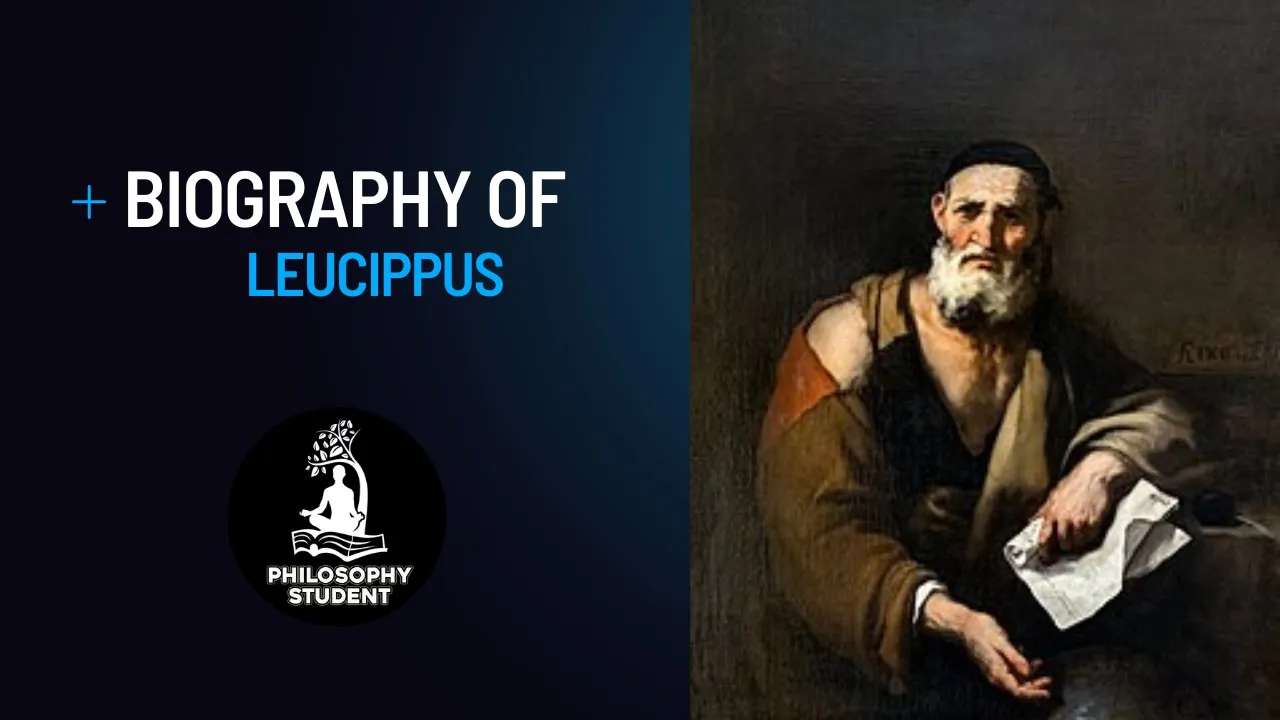Remarkably little is known of Leucippus, who is generally credited with having founded atomism in Greek philosophy. Except for this historical distinction, there is little evidence to show how Leucippus’ concept of atoms differs from the more famous example of Democritus, with whom he was associated.
Leucippus may have been born in Elea, Abdera, or Miletus some time during the fifth century BC. He was reportedly a student of Zeno, who was a follower of Parmenides. Just how Leucippus worked with Democritus is subject to much controversial speculation. Indeed, Epicurus may have denied the very existence of Leucippus. Yet Aristotle credits him with laying the foundation for atomism.
The atomist doctrine ascribed to Leucippus holds that the universe consists of just two elements, “the full” (or “solid”) and “the empty” (or “void”). Both these elements are infinite and constitute all that is. Change, in this system, occurs only at the level of appearances, the ultimate constituents of being remaining changeless, only rearranging themselves into new combinations. As for the void, this was necessary to allow motion, and Leucippus purportedly argued that atoms are always in motion, an idea with which Aristotle found fault because Leucippus failed to account for what force produces the motion.
Leucippus formulated a cosmology in which worlds are formed by groups of atoms that coalesce in a cosmic whirl. This forces the atoms to separate out and sort themselves by like kind. The circling atoms create a membrane of atoms, which encloses others within it. The outer membrane acquires additional atoms, which take flame as they revolve. In this way, the stars were formed, with the burning sun in the outermost circle. Worlds are also formed, develop, and perish in this same process of coalescence and whirling.
Although Leucippus’ cosmology seems mechanical, a quotation that has come down from him declares that nothing happens in vain but everything proceeds from logos and by necessity. The introduction of logos suggests regulation by reason, which certainly has no place in Democritus’ atomism. The interpretation of the logos quotation remains unresolved.




































